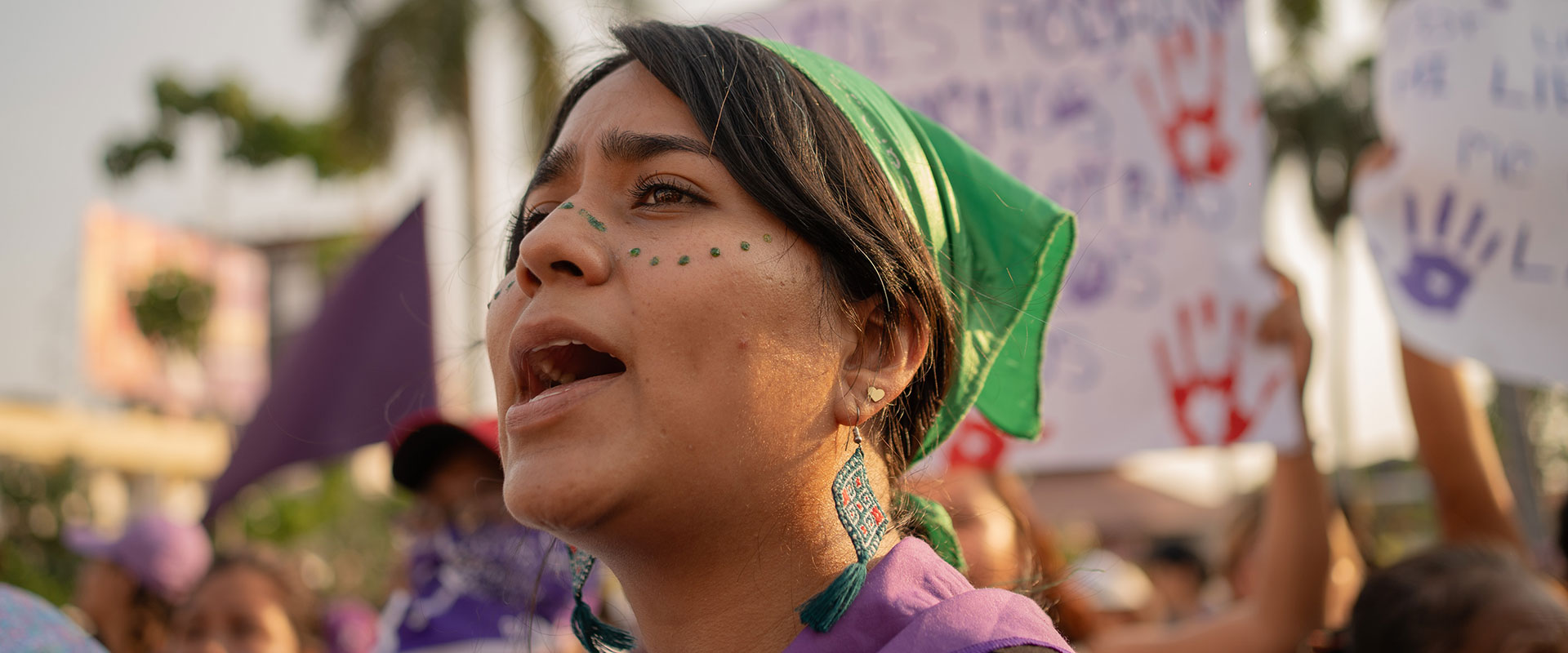Despite immense challenges to our work by anti-rights extremists in the past year, we’ve stood resolute in our commitment to fight for everyone’s right to determine their own future.
The stories here showcase some of our most impactful work in recent years, including our 2024 initiatives. They show how Ipas teams—together with our partners and diverse activists, health workers, educators, community leaders and more—remain unwavering in our mission to empower women and girls and fulfill critical unmet needs in reproductive health care.
1. Providing critical sexual and reproductive health care in the heart of conflict in DRC
Dr. Celestine Buyibuyi’s life has been shaped by armed conflict. Born and raised amidst war, her experience echoes that of millions in the Democratic Republic of Congo (DRC). As a doctor serving as Ipas’s community engagement advisor in East DRC, Buyibuyi says her motivation for doing what she does is simple: “When I see a woman suffering, I see myself suffering.”
She collaborates with Ipas partners in camps for people displaced by violence to fill a critical and unmet need: sexual and reproductive health care that includes abortion.
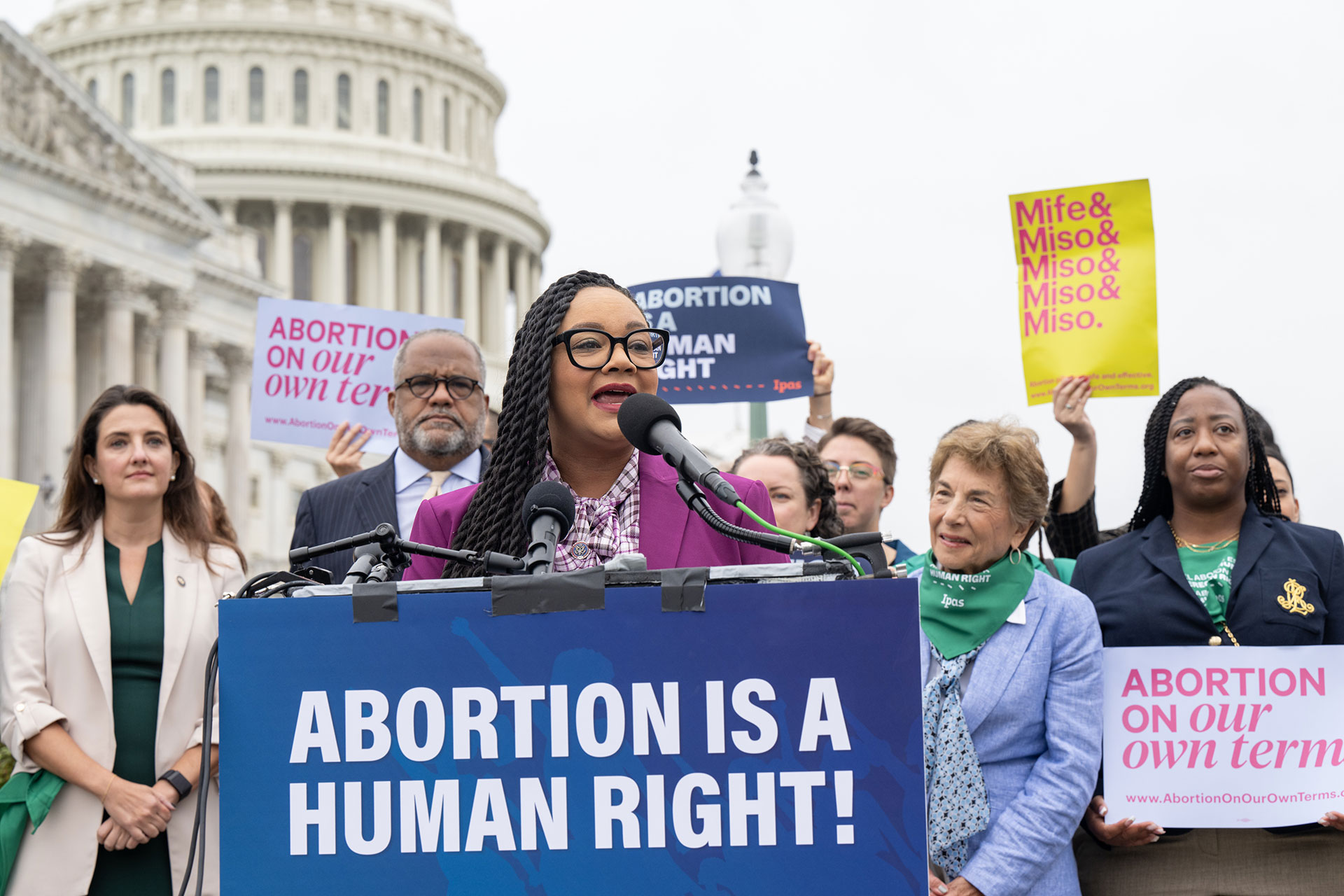
by Phi Nguyen
2. Resolution supporting abortion as a human right introduced in U.S. Congress
On Sept. 24, a resolution condemning the criminalization of abortion in the United States and urging governments at all levels—federal, state and local—to uphold abortion as a human right was introduced in the U.S. House of Representatives. With 96 original co-sponsors and the endorsement of over 130 leading reproductive health, rights and justice organizations, this resolution underscores the interconnectedness of local action and global human rights commitments. Ipas helped spearhead the resolution alongside its U.S. partners.
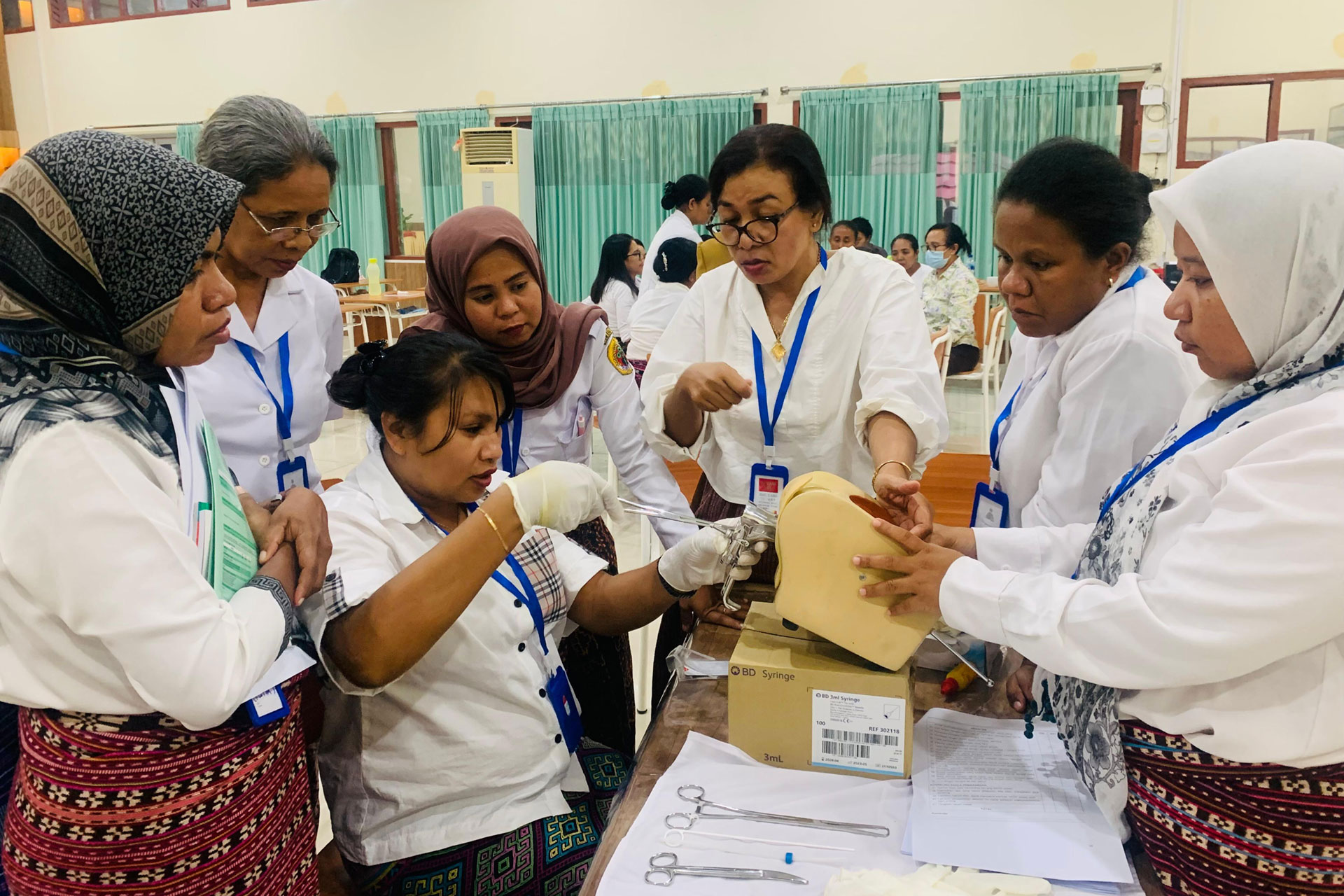
Ipas Indonesia
3. Expanding family planning access in Indonesia by tackling myths, boosting clinical skills and challenging patriarchy
Ipas Indonesia’s 2023 assessment in East Nusa Tenggara showed that contraceptive use remains low because women often stop after their first contraceptive usage. Several factors are to blame, including social and cultural myths about family planning, limited access to health services, and poor quality of existing services.
To address this challenge, Ipas Indonesia has launched the TAKENUSA program (Tekad bersama untuk perempuan Nusa Tenggara, or “Collective Determination for Women in Nusa Tenggara”) which focuses on:
- Training midwives to deliver high-quality contraceptive services and support.
- Partnering with local organizations to train local leaders and community health workers to disseminate contraceptive information.
“I had not practiced any of this during my studies, only observed demonstrations. Even during my internship, I never had the chance to insert long-term contraceptives. This training has really boosted my confidence in providing services to the community.” – Yane M. Mallo, training participant

Ipas LAC
4. Green Wave Gathering: Inspiring activism and solidarity across the Americas
Ipas and partners hosted the second Green Wave Gathering in May 2024 in Mexico City, uniting 150 activists from across the Americas, including from the United States, Peru, Argentina, Brazil, and more. Organized by the Women’s Equality Center, Ipas Latin America and the Caribbean, Ipas United States. and the Guttmacher Institute, the two-day event inspired and fortified movements for reproductive justice and abortion rights throughout the region.
“For the Ipas team in the United States, it is important to be in this space; they are experiencing a very challenging reality after [the fall of] Roe v. Wade. Being part of a global struggle can infuse a lot of strength and energy into their work.” — Sergia Galvan Ortega, Ipas board member
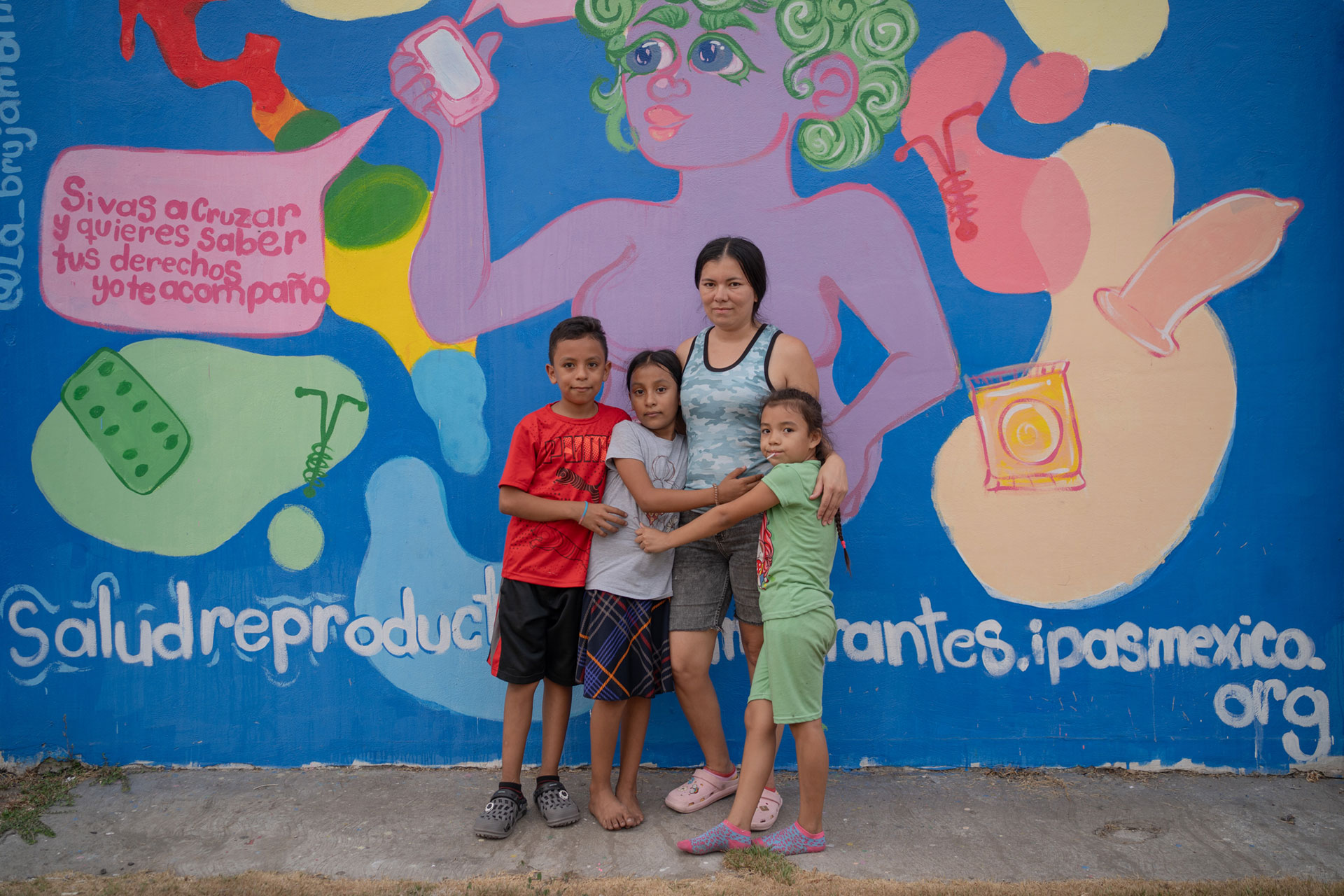
by Victoria Razo
5. Expanding abortion access along key migration routes in Latin America
Millions of people, half of them women, migrate across Latin America each year. Many arrive at Mexico’s southern border—including 45,000 women, mostly from Central America—making the country one of the largest migrant corridors in the world.
During their perilous journey, many migrant women endure sexual and gender-based violence. Without local connections or knowledge when they cross into Mexico, these women often have acute sexual and reproductive health needs, yet fear they’ll be deported if they seek care.
To address these urgent needs, Ipas Latin America and the Caribbean built strong partnerships with federal, state, and local organizations and institutions. Together, we train health workers, provide health education for migrants, and have created Te Acompaño, the first Spanish-language chatbot specifically for migrants that offers reliable information on sexual violence, reproductive rights, abortion access, and how to find local services and support.
“Whenever one needs support, one can access it,” says Saraí Gomez when describing the chatbot. Gomez, a migrant from Honduras, is shown in the photo above with her family. Gomez fled threats of gang violence, leaving her home in the middle of the night in search of safety for her children.
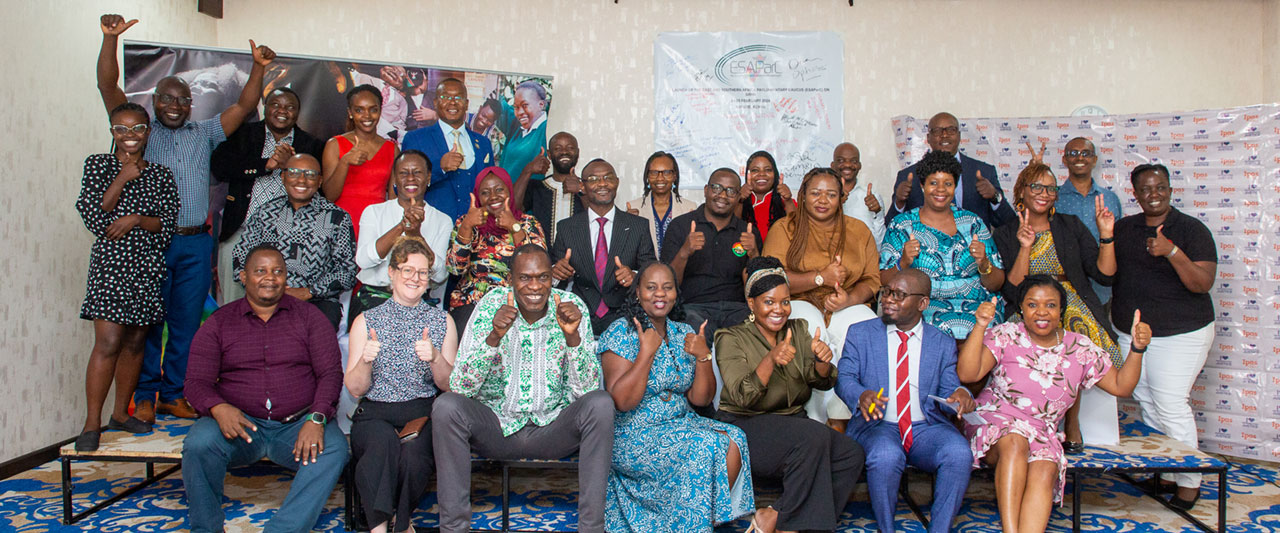
6. Advancing sexual and reproductive health in Eastern and Southern Africa
In a landmark development for the Eastern and Southern African region, parliamentarians from diverse backgrounds and countries united under the banner of the Eastern and Southern Africa Parliamentary Caucus on Sexual Reproductive Health and Rights (ESAParc).
Seeing the need for coordinated action to improve sexual and reproductive health and rights in the region, parliamentarians worked alongside Ipas Africa Alliance, Ipas Africa Southern Region and various strategic partners to form the caucus.
“By uniting policymakers and stakeholders under a common vision, the caucus endeavors to create a future where sexual and reproductive health and rights are recognized as fundamental human rights, ensuring universal access to high-quality services for all.” – Clement Kolove, policy and programs advisor for Ipas Africa Southern Region
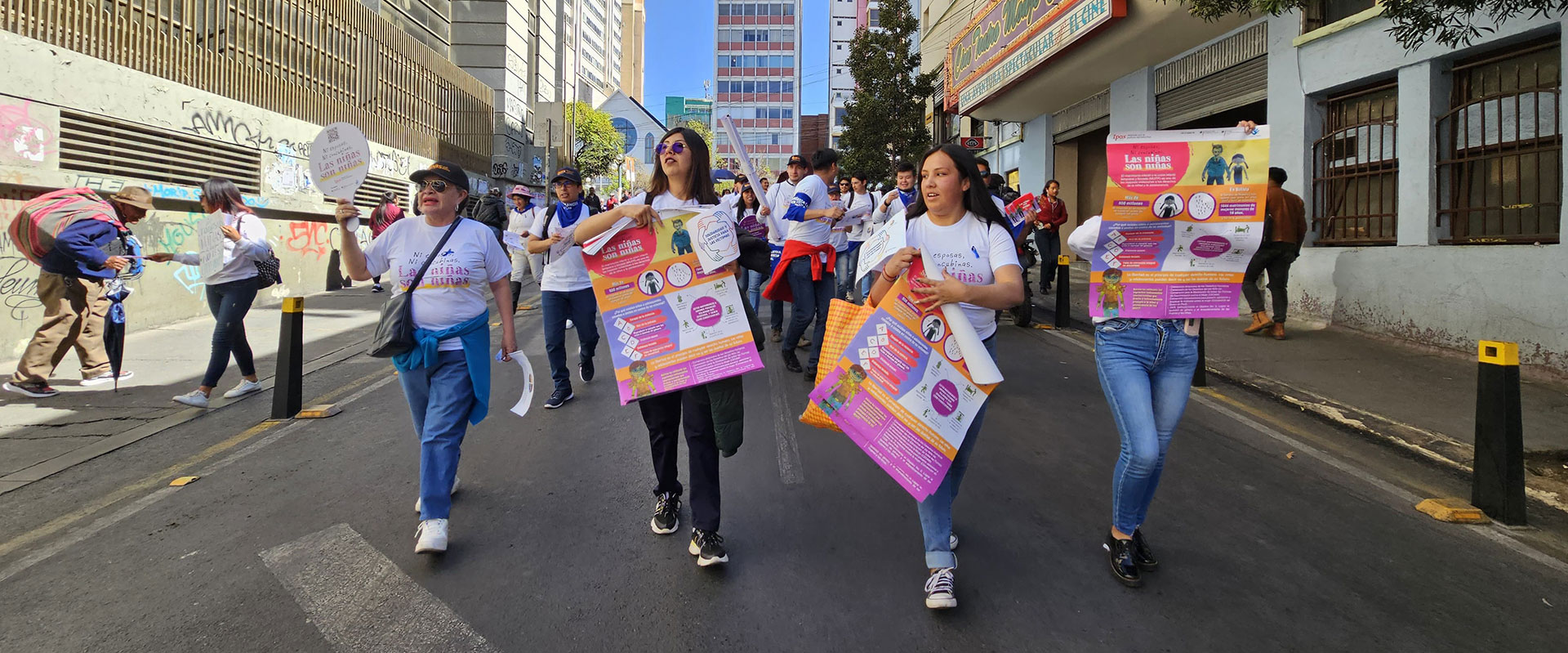
Ipas Bolivia
7. Breaking the cycle of gender-based violence: Ipas Bolivia’s all-in approach
For over 25 years, Ipas Bolivia has been a trailblazer in advancing the rights of survivors of sexual and gender-based violence (SGBV)—raising awareness and pushing for proactive solutions. Unlike many initiatives focused mainly on responding to violence, Ipas Bolivia goes further by not only ensuring care and justice for survivors but creating comprehensive programs to prevent violence before it happens.
“Preventing sexual violence is just as important as addressing it. That’s why at Ipas Bolivia, we work not only in health care but also in education, community support, and public policies that tackle the problem at its roots and drive real and sustainable change,” says Malena Morales, director of Ipas Bolivia.
Tackling the issue on multiple fronts, Ipas Bolivia is creating a safer future for Bolivian youth and redefining standards for SGBV prevention.
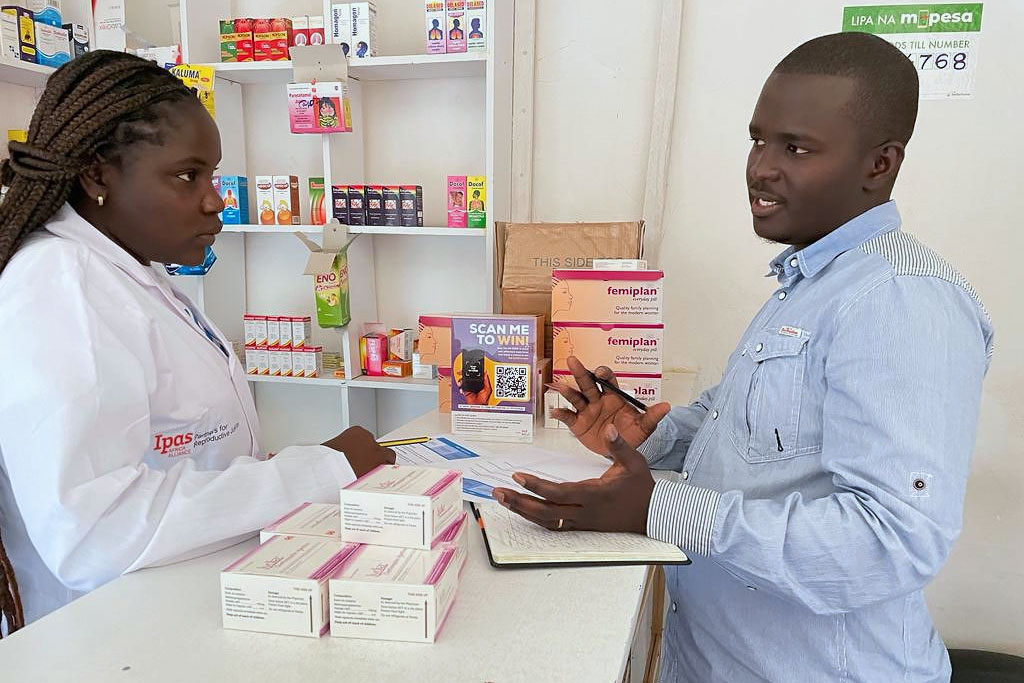
Ipas Africa Alliance
8. Transforming access to abortion with pills in Kenya
The consequences of abortion with unsafe methods weigh heavily on individuals, families, society and health-care systems. In Kenya, maternal deaths directly associated with unsafe abortion are nearly 6,000 yearly. Western Kenya and Rift Valley have the highest rates of abortion with unsafe methods, with the majority of women under 25 years old.
It’s against this backdrop that Ipas Africa Alliance partnered with the Ministry of Health and Pharmacists/Pharmatech to launch the Medical Abortion Self Use project in 2021. It aims to reduce deaths and injuries tied to unintended pregnancies among girls and women. Research has shown that access to medical abortion, also known as abortion with pills, greatly decreases the number of women who resort to abortion with unsafe methods and suffer complications.
“By improving our documentation processes and following set guidelines, I’ve been able to establish strong relationships with my clients. Their trust in the care they receive has grown significantly.” — Health provider who received training through the project

Ipas Nepal
9. Expanding abortion access in Nepal through the VCAT training approach
Dr. Deeb Shrestha Dangol, a dedicated OB-GYN and head of health systems and policy for Ipas Nepal, has played a significant role in expanding abortion access across Nepal. Navigating a shifting landscape of abortion rights and stigma, she has fought to expand abortion access in Nepal for over twenty years.
Dr. Deeb’s journey as a doctor and an abortion rights advocate led her to an Ipas training approach called abortion values clarification for action and transformation (VCAT). Through this comprehensive method of challenging abortion stigma, she has helped expand safe abortion care, leading to a sustained partnership with Nepal’s government to train and prepare health providers to offer abortion services.
“We wanted them to first understand that abortion is legal in Nepal,” Dr. Deeb explains. “Then we would move to deeper discussions, where you are able to touch people’s hearts and create points of real understanding and compassion.”


